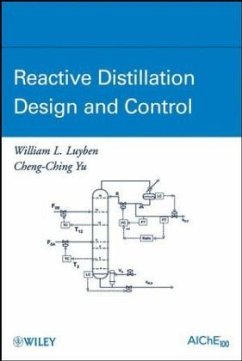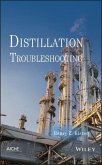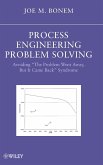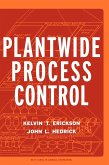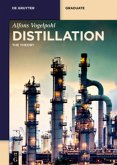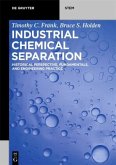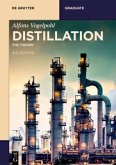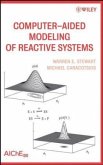Reactive distillation has economical and environmental advantages
Reactive distillation is a breakthrough process innovation with numerous applicationsin the petroleum and chemical industries. In systems with the appropriate chemistryand vapor-liquid phase equilibrium, it combines the reaction and separation operations,which reduces energy and capital costs and environmental impact. After an overview of the fundamentals, limitations, and scope of reactive distillation, Reactive Distillation Design and Control:
_ Uses rigorous models for steady-state design and dynamic analysis of different types of reactive distillation columns
_ Quantitatively compares the economics of reactive distillation columns with conventional multi-unit processes
_ Goes beyond traditional steady-state design that considers primarily the capital investment andenergy costs when analyzing the control structure and the dynamic robustness of disturbances
_ Discusses how to maximize the economic and environmental benefits of reactive distillation technology
Written by authors who have a background in design and control with an emphasis on practical engineering solutions to real industrial problems, this guide forgoes intricate, complicated mathematics and complex methods of analysis and gets down to business. It's an accessible reference for chemical, process, and petroleum engineers and undergraduate and graduate students in chemical engineering.
Reactive distillation is a breakthrough process innovation with numerous applicationsin the petroleum and chemical industries. In systems with the appropriate chemistryand vapor-liquid phase equilibrium, it combines the reaction and separation operations,which reduces energy and capital costs and environmental impact. After an overview of the fundamentals, limitations, and scope of reactive distillation, Reactive Distillation Design and Control:
_ Uses rigorous models for steady-state design and dynamic analysis of different types of reactive distillation columns
_ Quantitatively compares the economics of reactive distillation columns with conventional multi-unit processes
_ Goes beyond traditional steady-state design that considers primarily the capital investment andenergy costs when analyzing the control structure and the dynamic robustness of disturbances
_ Discusses how to maximize the economic and environmental benefits of reactive distillation technology
Written by authors who have a background in design and control with an emphasis on practical engineering solutions to real industrial problems, this guide forgoes intricate, complicated mathematics and complex methods of analysis and gets down to business. It's an accessible reference for chemical, process, and petroleum engineers and undergraduate and graduate students in chemical engineering.

